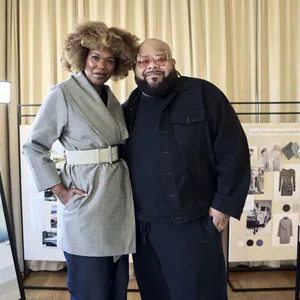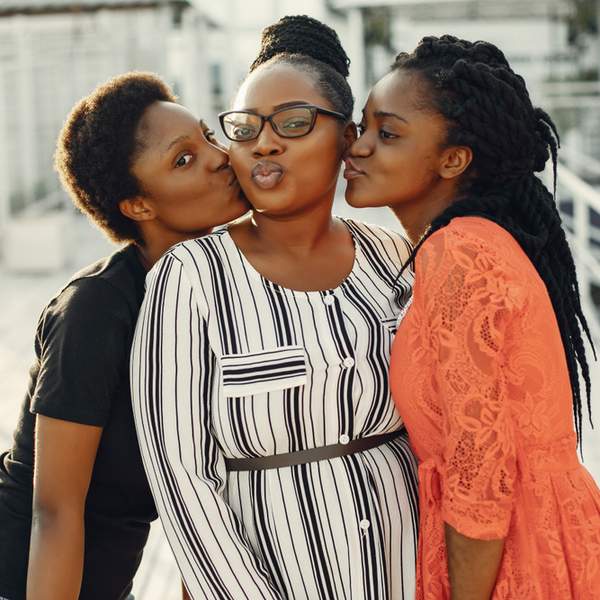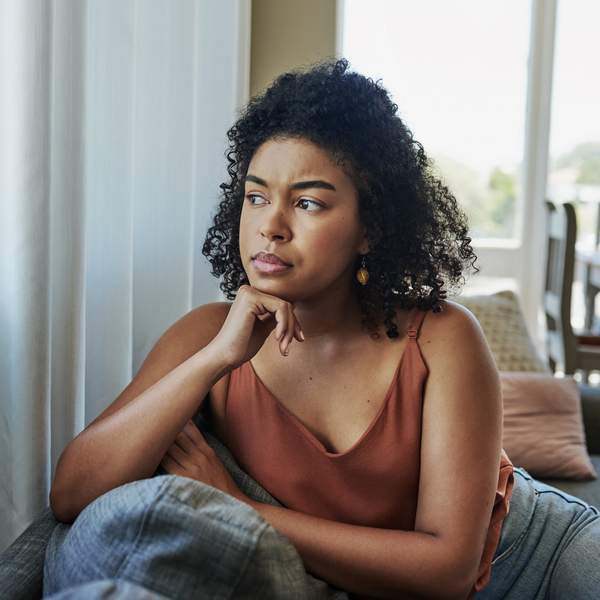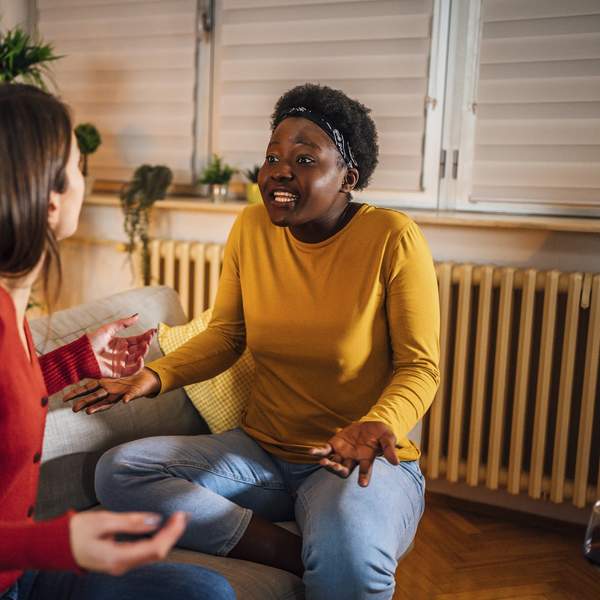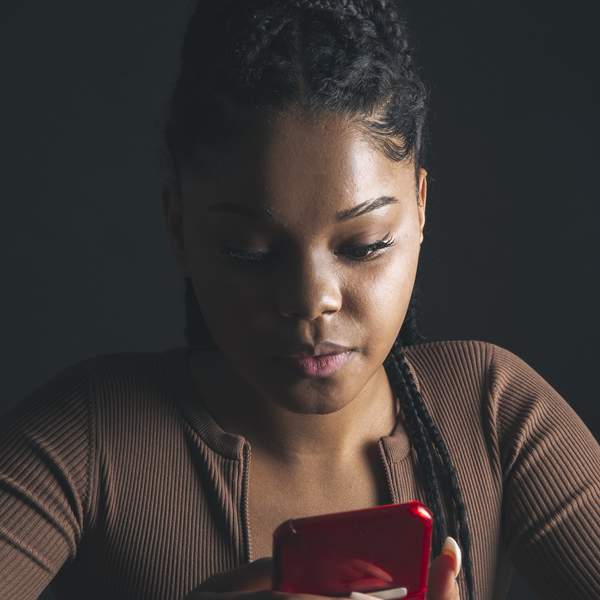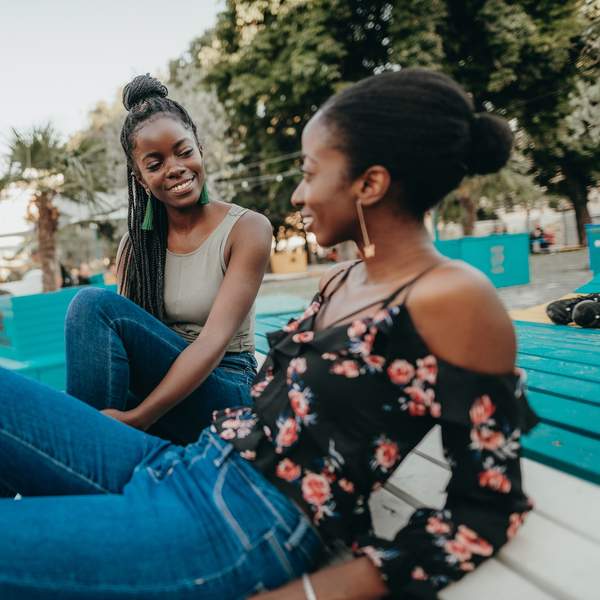Something that I try and do, right around this time of the year, is take an inventory of my friendships. Some folks think that it's weird, but I don't care. When you spend enough time working with married couples, and you see in a very up close and personal way that, oftentimes what tends to cause the breakdown of their relationship is either A) they aren't genuinely friends or B) even as friends, they haven't made the time to revisit the needs and expectations that they have, you learn how important taking regular relational inventory actually is. After all, the word "inventory" literally means "to take stock of; evaluate". And why shouldn't you be intentional about evaluating your friendships?
Why do I do it right around this time? There is something about the fall and winter that beckons us to think about where we are in our lives and then ponder how we want to move forward as we prepare to go into the new year. Plus, since a lot of us get to take at least a couple of days off during the holidays, this is also a good time to schedule in some quality time with the homies to make sure that everything's good.
A wise person once said, "A true friend accepts who you are, but also helps you become who you should be." If you want to make sure that you and your friends are doing these things for one another, use these final few weeks of the year to get clarity by asking the following 10 questions—and by allowing your friends to ask you these questions as well. I've done it. It's quite revelatory and beneficial. It definitely helps to bring new light and great insight into where things stand—and that's always a good thing.
1. Are You Happy with Where Things Are?
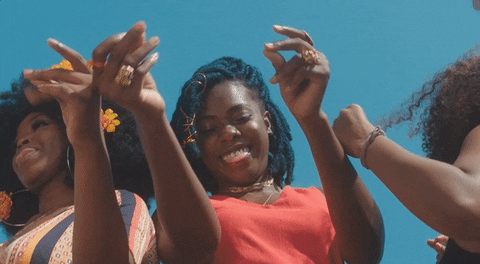
The reason why I semi-recently penned "What If You Love Your Friend...But Don't Like Her Anymore?" for the site is because, you'd be amazed how many people are stressed out over what to do about some of their friendships because that is exactly how they feel. They love their friend(s), but they don't like them very much (anymore). Once they allow that reality to simmer, either one of two things typically ends up happening—either a huge fight (and by "fight", I mean fall out) occurs, or they end up ghosting the individual.
I've been ghosted by a close friend before. It took me a while to heal from the experience, so personally, I'm not a fan of it. I feel like things can be handled so much better if some communication transpires. More importantly, proactive communication. That's why I recommend asking your friends if they are happy with where your friendship with them currently is. Not if it's perfect because it ain't, but if, overall, they find joy in the connection and contentment in the relationship. If they are, the rest of these questions will basically be a breeze. If they're not, there's no time like the present to hear why they're not so that you can see if anything can be done to change that.
2. What Can I Do to Strengthen the Trust Between Us?
My friends know that, when it comes to the things that I am convicted on, I'm a pretty black-and-white individual; that I see very little grey. I am fine being that way; it's a part of my core. But where I realize that I had to grow was accepting that everyone is not like me; that our perspectives and experiences can result in us coming to different conclusions on various matters. So, while my friends know that I'm loyal when it comes to keeping their business private and holding them down, I had to strengthen the trust bond by making them feel like they could come to me whether I agreed with what they were saying or doing or not. That, they didn't have to worry about feeling berated or attacked for expressing their own journey—even during the times when they knew they deserved better. I had to work on becoming a safer place and space.
When someone trusts you, it means they are confident in knowing that they can rely on you. When the trust between two people is solid, there is very little that they can't get through together. Trust is something that is ever-evolving. It can never hurt to ask your friends what you can do to make the integrity of your bond with them even stronger.
3. What Are the Strengths and Weaknesses in Our Friendship?
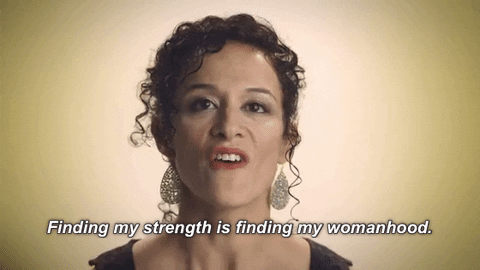
This is the kind of question that, if you're an ego maniac or super insecure, it can be hard to hear the answers to. But since one of the purposes of friendship is to help us to become better people, it can benefit you to hear your perceived strengths and weaknesses from the ones who love you most.
Here's why I say that. Recently, I had a rare "fight" with a close friend of mine. She said something, three times in a row, that triggered me to the point that I left her office and went home. I was pissed. Because, in times past, my pride would sometimes cause me to wait until the other person came to me first, and also because I'm working more and more on not letting the sun set on my anger (Ephesians 4:26), I called her as soon as I walked through my door. After a two-hour discussion, we talked about how a strength of mine is stating my needs and how a weakness of mine is sometimes taking out my triggers on the wrong people. I shared that a strength of hers is listening really well and a weakness is not always apologizing when she's wrong.
I'd venture to say that if we hadn't had that chat, we could've had an even bigger blow-up next year. It would be because I wouldn't be using this time to deactivate certain triggers, and she wouldn't be working on acknowledging her offenses. But now that we're both aware, we know how to encourage each other to be better. We know how to build up one another's strengths and help each other to grow where are weaknesses are concerned.
4. What Are Your Triggers? Do I Have a Tendency to Push Them?
On the heels of the last point, while reading an article on emotional triggers, I liked how the author defined them as being, "the surprises that we get when someone we love, or a situation, causes us to have a reaction that we haven't processed yet". When I reflect on my own triggers—and also the triggers of some people that I know—I truly believe that some people have conflict, not because of their relationship, but because they are constantly "triggering" each other. However, once the triggers are brought to the forefront, things are able to balance themselves back out and peace is then restored.
This is why, I most definitely recommend that you and your friends talk about one another's triggers. What they are, where they came from and how to avoid poking at them. Again, there's no telling how many friendships could be spared, just by having this one conversation alone.
5. What Is Something That You Wish We Would Do Together More?
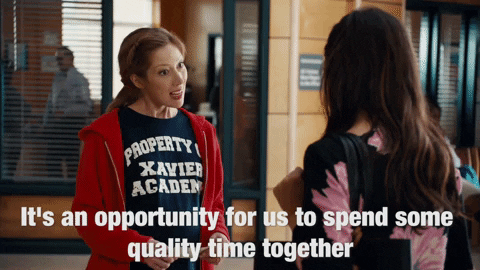
None of us really "have" time in the sense that we're simply twiddling our thumbs and looking for stuff to do. But when you value someone, you find a way to make time for them. No matter what your actual love language may be, all of us need quality time, especially with our close friends. It's a great way to nurture the friendship and, to also be able to spend time together without any distractions.
Something that I like about my friendships is different ones tap into different interests that I have. Yours probably do too. Even if you're only able to get together with your buddies, once a month or, if they live out of town, once a year, be intentional about making plans to hang out. Do something for the first time together. Take a class. Go on a vacation. Do something that reminds you both that, no matter how hectic life gets, you've always got time for each other. And you want to make as many memories together as you possibly can.
6. Do You Think We Make Enough Time for Each Other?
Speaking of time, when you're like me and you're in your 40s and have never been married and you don't have children, sometimes you can find yourself doing most of the work to keep your friendships afloat. At least it can end up being that way until you bring it to the attention of the friends in your life who are married and/or have children. If you're married or a parent and you're reading this, I am confident when I speak for those who don't fit your demographic when I say, "Just because we're not 'your kind of busy', that doesn't mean that we still don't have plenty of ish to do." All people who are living out their purpose do. So, just like you've got to carve out time to hit us up, we've got to do the same.
This was the conversation that I recently had with one of my favorite people on the planet. I had to let her know that, when I looked at my phone, it had been about a month since she rang me, even though we speak a couple of times a week. After I said it, she didn't feel some type of way. She actually acknowledged that she was slipping a bit. Things have been balanced ever since.
Nothing grows when we don't spend time with and on it. And while none of us have a ton of time, for the sake of taking good care of our friendships, it's important that we do our best to make some. More than that, that our friends feel like we are making some just for them.
7. Is There Anything That Bothered You this Year That You’re Holding Onto?
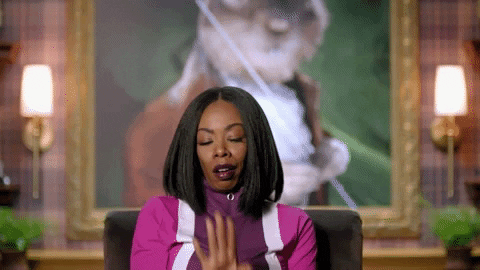
A girlfriend of mine recently told me about how a girlfriend of hers forgot her birthday for the third year in a row. I'm a Gemini and we tend to act like our birthdays are national holidays, so I could definitely feel her pain. When I asked her what bothered her most about it, she said that it was the fact that, prior to three years ago, this particular friend made a huge deal about her special day. So, she felt like it was a passive aggressive way of addressing—or rather, not addressing—some hard conversations that she's had with her ever since her friend got into a toxic relationship.
When I asked my friend if she was going to discuss this with her friend, she said, "No. If she cared, she'd do better." Eh. My take on her resolve is, that's a lot to assume—the passive aggressiveness, the motive behind dropping the birthday ball, and also thinking that she doesn't care. And what's really crazy is her friend may be out here thinking that everything is perfectly fine. Clearly, it's not.
A good article on suppressed emotions brings up a very valid point—"If you don't face suppressed emotions, you'll stay stuck in getting over it mentality, and it'll become impossible for you to heal." If there's something that you're holding onto, tell your friend(s). While you're at it, ask them if they need to get something off of their chest as well. That way, everyone can go into the new year with clarity and a clean slate. No one will have to drag any baggage that came from holding stuff in instead of (respectfully) letting it all out.
8. What Do You Think We Currently Have in Common?
I'm pretty sure you've heard the C.S. Lewis quote that says, "Friendship is born at that moment when one person says to another: "What! You too? I thought I was the only one." Keeping this quote in mind, I've got a male and female friend who I can easily stay on the phone with for hours at a time because we've got so much in common. At the same time, because I'm single, she's married and he's divorced and also because we each live in a different state and do totally different things for a living, our life experiences constantly expose us to new things too.
My girlfriend used to totally consume pop culture; now she's far more into politics. My male friend was a homebody when he was married; now that he's divorced, ole' boy is out there (in about every sense of the word!). As they shift, there are some things that we don't have in common. We're not clones of one another, so that's perfectly fine. But, the reason why I make a point to ask them what they feel that we do have in common is so we can still feel connected via those things, as we give each other the freedom to have other interests with other people too. That way, we don't feel like we're "losing" each other so much as we're celebrating each other's growth and evolution.
9. Are Your Needs Being Met in Our Friendship?
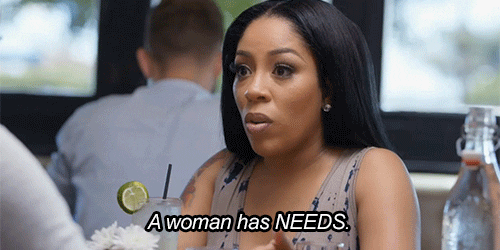
An article that I wrote on the platform that helped me to get my own self free was "Here's Why You KEEP Not Getting What You Need In Your Relationships". One of the reasons why I kept feeling deprived in some of my relationships with people is because I was expecting others to be the kind of friend that I was—to give in the way that I do, to make time in the way that I do, to be proactive in the way that I tend to be. Another key to better relationships is accepting that you are you and others are, well, them.
Once I started to voice my needs more, one of two things started to happen. Either people fell off or they stepped up. Both results were ultimately for my good. That's why, I am a huge encourager of individuals expressing their needs while asking the people in their life what they need from them in return. If the needs can be met, cool. If they can't, well, there's no time like the present to move out of the way so that someone else can—and will.
10. What Can I Do to Support You at this Stage in Your Life?
If all of us are truly taking our gifts, talents and time seriously, we're not in the same place nor are we the same person that we were this time last year. This means that some of our goals, desires and perhaps, even insights have shifted. This also means that what we needed this time last year may be different than what we require now. That is why I'm ending this piece with suggesting that you ask the close friends in your life about how you can support them in this stage and season.
Case in point. This time last year, I didn't have my latest godchild. Watching her mom, one of my dearest friends, transition from one child to two has been remarkable. It has also meant that I've needed to help her in ways that I never had to before.
When it comes to maintaining strong, healthy and thriving friendships, support is actually one of my favorite words. It means to hold up. It means to endure. It means to "withstand without giving way". Just by caring enough to ask the close friends in your life how you can support them, it will convey a level of love and care that is getting rarer by the day. Two people who support each other, in the ways that they need to be supported, are two people who can stand the test of time on the friendship tip.
Y'all, these are the 10 questions that have truly blessed my friendships. I hope they can do the same for you. Whether it's this month or the next, make the time to connect in this way. No matter how the conversation plays out, it'll be for your—and your friends'—ultimate good.
Want more stories like this? Sign up for our newsletter here and check out the related reads below:
This Is How To Apply Love Languages To Your Friendships
10 Signs You've Got A Close (TOXIC) Friend
According To Aristotle, We Need 'Utility', 'Pleasure' & 'Good' Friends
Allow These Things To Happen Before Calling Someone "Friend"
Did you know that xoNecole has a new podcast? Join founder Necole Kane, and co-hosts Sheriden Chanel and Amer Woods, for conversations over cocktails each and every week by subscribing to xoNecole Happy Hour podcast on Apple Podcasts and Spotify.
Feature image by Shutterstock
- 20 Things To Ask Your Best Friend To Make Your Relationship Even ... ›
- 130 Questions To Ask Friends, Funny Questions, Deep Questions ›
- 50 Extremely Good Best Friend Tag Questions To Ask Your Friend ›
- 100 Good, Personal & Deep Questions to Ask Your Best Friend ›
- 60 Best Friend Questions You Should Ask If You Haven't Already ... ›
- 60 Best Questions To Ask Friends - Questions To Deepen Friendships ›
- 40 important questions to ask a friend or your BFF - HelloGiggles ›
- 200 Questions to Get to Know Someone - The list you are looking for ›
- 70 Questions To Ask Your Best Friend - Quickly spark great ... ›
- 55 Important Questions To Ask Your Best Friend, With GIFs | Teen ... ›


